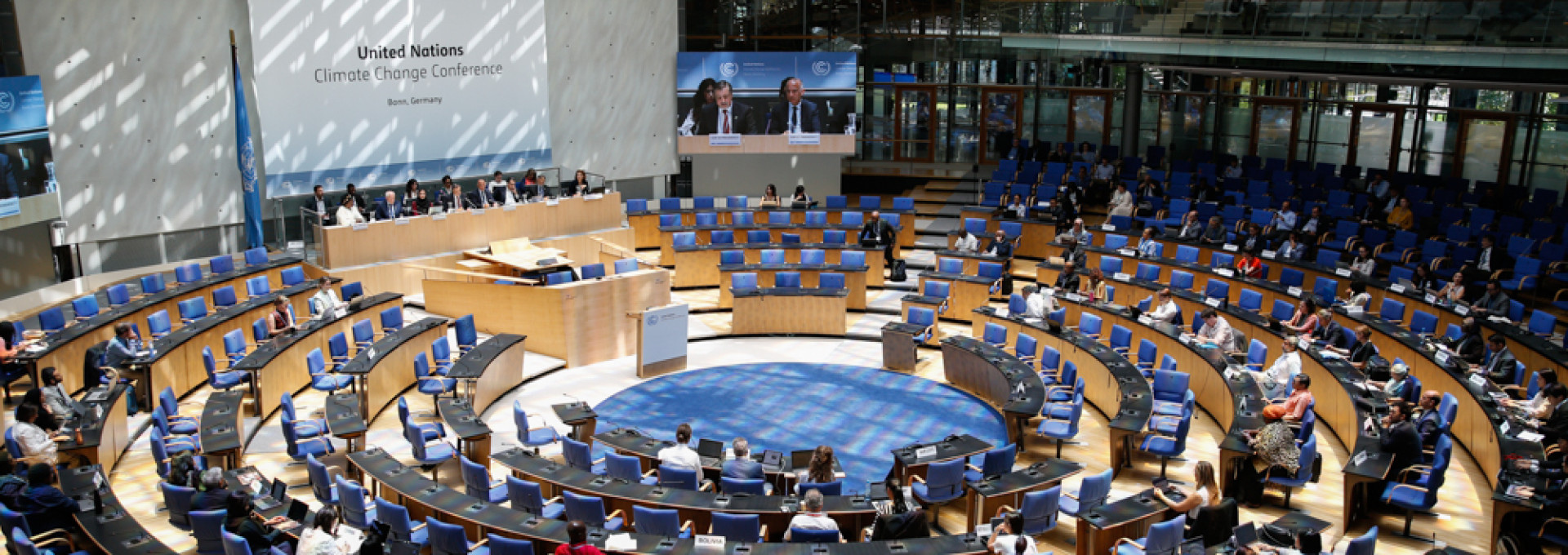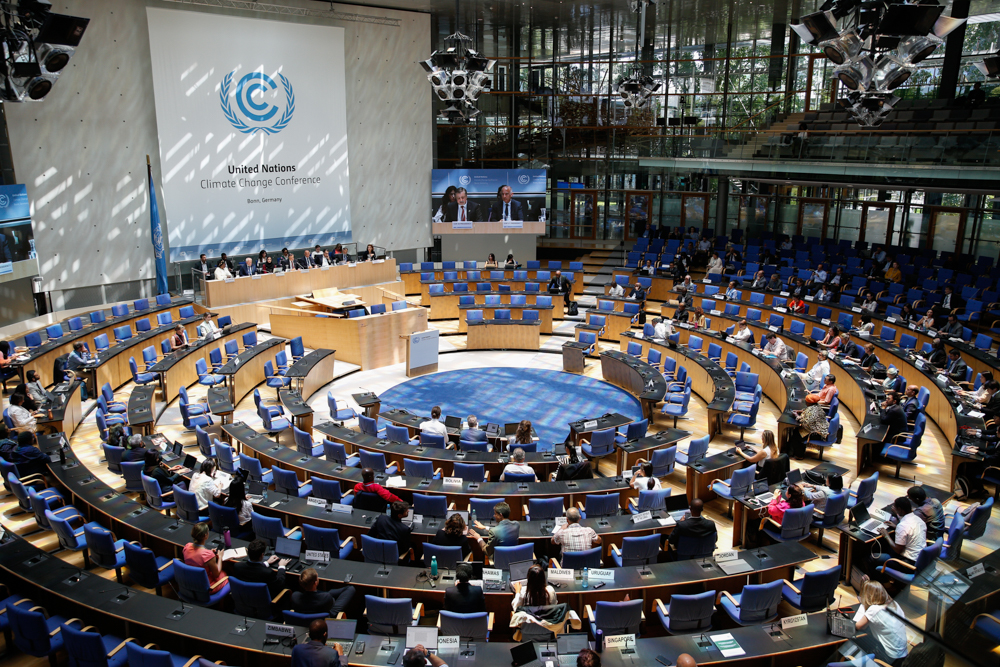



The goal of the Bonn climate talks was to lay the groundwork for the forthcoming UN Climate Conference COP28 in Dubai. Although significant conflicts of interest and a protracted battle over the agenda hindered any notable progress, there were also positive developments, according to observers.
“Pitiful”, was the word the General Secretary of the United Nations, António Guterres, used to describe the results of the UN climate talks, which took place in Bonn from 5 to 15 June, with the participation of delegates from around the world. “We are hurtling towards disaster, eyes wide open — with far too many willing to bet it all on wishful thinking, unproven technologies and silver bullet solutions,” said Guterres.
The goal of the talks was to prepare for the forthcoming UN Climate Conference COP28, which will take place in Dubai in December. However, the majority of the discussions stalled, commented Reimund Schwarze, Climate Economist at the Helmholtz Centre for Environmental Research – UFZ, who has been attending international climate talks for years. Conflicts of interest remain a major issue: In fact, the delegates argued about which topics should be added to the agenda until their second-to-last day in Bonn.
Little progress on the Global Stocktake
The main point of contention was whether the “Mitigation Work Program” should make it onto the agenda. This program aims to “urgently scale up mitigation ambition and implementation” by 2030, in order to reach the Paris Agreement's target of 1.5 degrees. Certain developing countries opposed the motion. Their argument: Any discussions about reducing emissions must include discussions about financial support for developing countries. Shortly before the end of the two-week talks, a compromise was reached: both topics were left out of the agenda.
The central topic, which had to be prepared in Bonn, was the first global inventory for the implementation of the Paris Agreement, also known as the Global Stocktake. Its aim is to review the status of national climate change mitigation and adaptation policies, as well as their financing, and to improve the trajectory toward global climate goals.
However, little substantial progress was made towards preparing for the Global Stocktake, says Schwarze. Accordingly, he does not believe that the states will come to an agreement in Dubai about the criteria for evaluating existing climate change adaptation measures.
No fossil fuel phase-out in sight


As for the phase-out of fossil fuels, Schwarze's forecast is also grim. All of the conference documents mention reducing “fossil emissions” and relying on the possibility of carbon capture and storage (CCS), which disappoints many observers. “The major obstacle is not only resistance by the COP28 presidency of the United Arab Emirates, but also by some developing countries, particularly in Africa,” says Schwarze.
The COP28 presidency has long faced criticism: many observers doubt that the country is genuinely invested in global climate protection. Ahmed Al Jaber, the president-designate of the conference, is not only the UAE's Minister of Industry. He is also the leader of the country's largest national oil and gas company, ADNOC. In May, around 130 parliament members from Europe and the USA published an open letter, in which they demanded that Al Jaber steps back in light of massive conflicts of interest.
Minor progress on finance
However, Bonn was not a total failure, Schwarze says. He saw progress in discussions about the Loss and Damage Fund, which the nations agreed upon at the previous climate conference. This fund should provide money to countries that are suffering heavily from climate change.
“A compromise is emerging: Countries will not be compensating each other. Rather, there will be presumably an endowment for the Loss and Damage Fund, coupled to it as part of the increase in climate finance expected in Dubai,” explains Schwarze. “There are talks about pre-defined percentage for very narrowly defined services. These include questions about migration, island nations, and developments like rising sea levels.”
In addition, some countries, such as Japan, signaled that they would increase their contribution to the climate financing. In 2009, industrialized nations promised to make 100 billion dollars annually available to developing countries until 2020, in order to help them lower their emissions and adapt to climate change. However, this goal still has not been reached. Schwarze expects that certain countries will declare increased contributions to this fund at the Climate Ambition Summit in New York this September. “This would allow to finally close the disgraceful funding gap of 100 billion dollars,” says Schwarze.